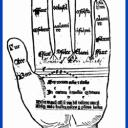Yahoo Answers is shutting down on May 4th, 2021 (Eastern Time) and beginning April 20th, 2021 (Eastern Time) the Yahoo Answers website will be in read-only mode. There will be no changes to other Yahoo properties or services, or your Yahoo account. You can find more information about the Yahoo Answers shutdown and how to download your data on this help page.
Trending News
How to recognize intervals quickly in music?
I play piano and when I read music, I can quickly identify the type of interval like 3rd, 5th etc, but not the quality, i.e. minor, diminished etc. I have to sit there and make sure there aren't any "hidden" extra half steps like between e&f, b&c and then I have to look at the key signature that might diminish or augment the interval again. It take me at least 10 seconds. How does one immediately take in all of it while playing?
Thanks!
2 Answers
- MamiankaLv 76 years agoFavorite Answer
You posted twice - I answer twice.
You learn to use both your ears AND your eyes. Some things in music are recognized by sight - C to F, - yeah, that's a P4 - and some by sound, within the key - I *hear* Eb to C in the key of Eb - yup, a major sixth - and I am LOOKING at it now - yup, nailed it. I taught solfege for many years, mainly to my vocal/choral students, and even the fine instrumentalists in my groups/classes said that they benefited by this. There are countless funny songs around the Net that serve as learning devices, are certain songs that students have used for decades, to help them remember a certain interval - Here Comes the Bride for an ascending fourth, Maria form E West Side Story for a tritone, etc. Within a reasonable amount of time and usage, you just *learn* them. Sit yourself down, and in a few different keys, go thru all the interval s built up from the tonic, working chromatically. Then start form notes OTHER than the tonic. Do-mi is a major third (we are assuming a major key, first) - but re-fa is minor. Work you way thru - but do not beat yourself up. Your eyes and ears need a rest. Do *some* every day - but not a lot. You will learn faster that way.m As much as my student know I value HARD work - they also know that SMART work is better.
- Anonymous5 years ago
Lots of good musicians can play by ear. It's not an exceptionally difficult skill, at least beyond the mastery of the instrument that they've acquired to make it possible. It basically requires two things: 1) You need to know your music theory. You don't have to know all the terminology but you need to understand the concepts even if you don't now what they're called. 2) You need to have played similar things before. You know the key, the rhythm, etc... you've played similar things in the past. You're basically taking something you've never heard before and building upon it with a mixture of regurgitated ideas and new inspiration. Playing music by ear isn't that hard. Even mediocre musicians can typically play easy stuff by ear. As you get better you become able to play more complicated stuff by ear. EDIT: It would be pretty abnormal for somebody to master an instrument with no practice. But I don't think you can rightfully say that any musician who has put the effort into mastering his instrument can claim anything like playing by ear as anything other than a learned ability. It's something you pick up as you go.


